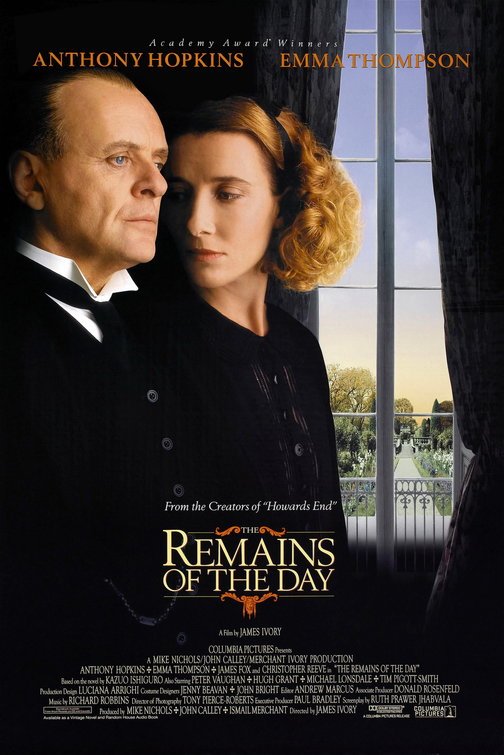Hey readers,
I actually came on to do a different book review this afternoon, but then I noticed that this one was still sat in my draft pile and it hadn't been started. I thought that I should get it written before I moved on and actually it's not that bad a novel. It won the Booker Prize and has been turned into a movie. The reason why I wanted to read this book was actually to expand on my Japanese authors. I thought it was funny how the novel was set in 1956 England and has flashbacks to the 1930's, when I first saw it. However, it turns out that Kazuo Ishiguro grew up in England and he still lives here.
So, though the novel isn't set in Japan as I was expecting it to be and it doesn't have the poetic flow of Murakami, it's still interesting. The story is about the life of a butler and its told in first person narrative, by the butler, Stevens. He receives a letter from the former housekeeper and having been encouraged by his current employer to take a holiday, he decides to travel down to see her. On the way he faces many small incidents, but he also starts to recall his past and what his life was like working for Lord Darlington before World War Two.
In-between the sections of the plot, Stevens reflects on life as a servant. He debates what the role of a 20th century butler is, their attitude and nature towards the job and what makes a great butler. He also reflections on his relationship with his father and the housekeeper, Miss Kenton. This adds to the plot in its own way and allows the reader to understand Stevens' nature, though its mostly done through telling.
The narrative is in present tense and does stay throughout the flashbacks and debates. Being in first person, it does feel like Stevens is telling the reader the story, but in parts it does seem like he is writing in a diary or else a letter. Thus showing the reflective side of the story. In some areas it does feel like the narrative wonders away from the actually plot, because Stevens is getting into a debate and trying to explain his point. However, these debates do fit into the story and are clearly a part of his character. The language used comes across as complexed in parts and also very detailed. This doesn't really distracted much from the story as Ishiguro has written the voice of Stevens really well.
The main characters are of course Stevens, Miss Kenton and Lord Darlington. There's a lot of background characters which make up the other servants in the house during both time settings, the visitors to the house and the people Stevens meets on his journey. There is also a lot of other characters who appear as name only, because Stevens is making reference to them in relation to one of his debates. I found all the characters to be well written and some do show development over time. Though plot isn't about the progress of characters because it's a reflective piece.
There are a few different themes that appear through out, but the main ones are relationships/friendships and love, servitude, dignity, loyalty, memory and politics. The last is also a sub-plot in the novel as it becomes clear that Lord Darlington is involved heavily in the politics of going to war and he comes across as a powerful figure. Love comes across in many forms and it often appears in-between the lines. The main focus of this novel seems to be about servitude and dignity. This does make for a different story then many might be expecting.
Over all, I did enjoy reading this novel, but I did find myself become lost in the debates that Stevens brought up. However, it is very interesting to hear the servants side of the story and we can see just how hard life sometimes was for them. I think there is also a lot more to this novel under the surface, though it can be difficult to understand, because the narrative doesn't stick to the plot. It has got me interested in reading more of Ishiguro's work.

Images from:
http://oldragdoll.wordpress.com/
http://www.impawards.com/1993/remains_of_the_day.html
No comments:
Post a Comment